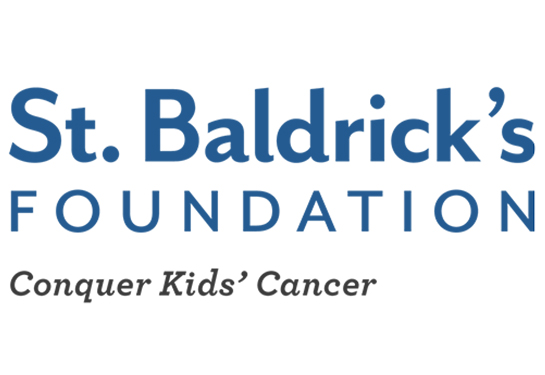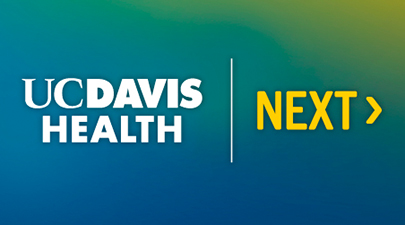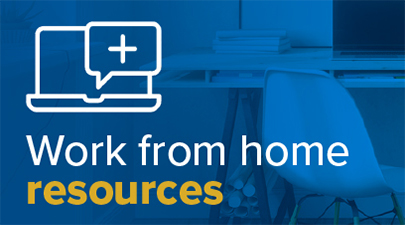What does a career look like at UC Davis Health? Five retirees reflect
Every year, the start of July means saying goodbye to several UC Davis Health employees entering retirement.
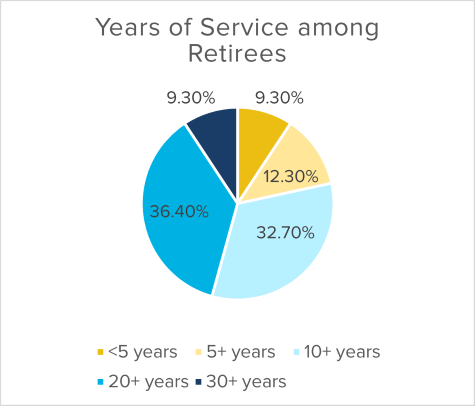
This year, 84 employees at UC Davis Health – and 140 university-wide – retired from roles that spanned patient care, education, administration, and research. The average retiring employee spent 16.5 years helping UC Davis fulfill its mission.
Below, several longtime employees reflect on what they’ve learned and what they’re looking forward to next.
Mark Servis, M.D.
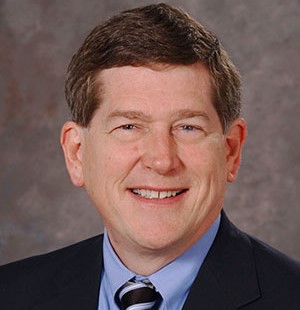
Vice Dean for Medical Education
As Vice Dean for Medical Education, Dr. Mark Servis helped shape generations of UC Davis School of Medicine graduates. But his path to medicine began far from any kind of hospital – in a high school biology classroom outside Cleveland.
Q: What drew you to medicine?
Mark: I wasn’t pre-med. I was a teacher first. But I applied to medical school and got in. I remember asking my fellow teachers if I should go, and they said, “Of course. You can always come back to teaching.” I never did – because medicine let me keep teaching. I ended up as a medical educator, which combined both passions.
Q: What has kept you motivated all these years?
The gift of medicine is that you get to make a difference almost every day. That’s rare. Even in my administrative role, I kept half a day of clinical work and continued teaching. Those touchpoints reminded me why I started.
Q: What’s your advice for medical professionals?
Cultivate something outside of medicine. It’s rewarding work, but all-consuming. If you don’t create balance – through hobbies, family, whatever speaks to you – you risk burnout or worse. You also need support. My wife and I always said we went through med school and residency together, even though she’s an art historian. Without her, I wouldn’t have made it.
Q: What has UC Davis meant to you?
When I moved here from the East Coast in the ‘80s, Davis wasn’t on anyone’s radar. But the culture was instantly different – collaborative, generous, inclusive. It still is, even as we’ve grown. And I’ve always been aligned with our mission: training physicians to serve underserved communities. That matters to me.
Q: Looking ahead, what challenges and opportunities do you see?
Generative AI will transform medical education. It can already outperform classroom lectures in some ways – but it can’t replace mentorship, ethics, communication, or professionalism. The future belongs to institutions that can evolve without losing the human core of learning and care.
Q: What’s next for you?
I don’t think of it as retirement – more like preferment. I’m consolidating life up in Tahoe: hiking, kayaking, skiing, paddleboarding, reading, piano, nonprofit work. It’s time for new adventures.
Marian Brotzman
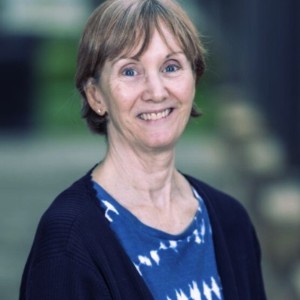
Executive Assistant, Office for Health Equity, Diversity and Inclusion
After more than 13 years of quiet dedication behind the scenes, Marian Brotzman leaves UC Davis Health with a reputation as the kind of person everyone relies on – and everyone respects.
Q: How did your journey at UC Davis Health begin?
I started as a temp at the front desk of the Dean’s Office in 2011. When the Office for Health Equity, Diversity and Inclusion was reestablished, I became the assistant to Dr. David Acosta. That turned into a full-time position, and I’ve been with the HEDI team ever since. It’s a small department – just 20 of us – but we’re close-knit and mission-driven.
Q: What made you stay?
The people. Always the people. I worked with amazing colleagues and supervisors. We respected each other, supported each other, and had fun. The benefits were great, of course, but it’s the relationships that kept me here.
Q: How did you see UC Davis grow during your time?
HEDI grew a lot. The programs expanded, the staff grew, and so did the impact – especially with groups like the Staff Advisory Committee for Equity, Diversity and Inclusion. I was proud to support that work administratively. It all came from a place of inclusion and community.
Q: What’s your advice for new employees?
Keep your heart open. Whatever your role, you’re part of something larger. Be open-minded and kind. Get to know people. UC Davis is a big place, but you’ll find your network here – especially through things like the Employee Resource Groups. Anyone can join, no matter your background.
Q: What’s next for you?
I’ve moved to Colorado Springs to be closer to family. I plan to volunteer at a local library and animal shelter – I’m a big cat and dog person. I also want to explore more trails and enjoy the outdoors. I'm looking forward to the new chapter.
Deborah DeatherageHand, R.N.
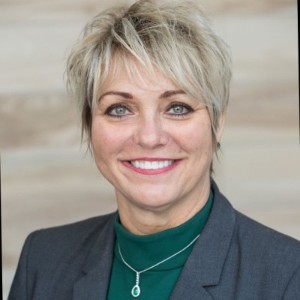
Nurse Practice Manager, Employee Health Services
For nearly 26 years, Deborah DeatherageHand built a nursing career defined by curiosity, courage, and transformation. She joined UC Davis Health in 1999 as a new graduate nurse – and went on to help shape multiple programs across the organization.
Q: What has your UC Davis journey looked like?
I started on the Ortho floor, then moved to the PACU – until a spinal injury from a patient changed my course. That led me to ambulatory care, where I helped launch the Women’s Midlife Assessment Center. Later, I managed vascular access, the cardiovascular unit, and the stroke program – helping us earn comprehensive stroke certification. Just before COVID hit, I transitioned to Employee Health, where I became the nurse manager.
Q: What has nursing taught you?
That reinvention is possible. After my injury, I could’ve stayed stuck – but instead, I upskilled, leaned on mentors, and found new paths. Every new role brought new certifications and learning. Nursing is still about people, no matter where you serve.
Q: What was it like leading Employee Health during COVID?
Intense. I onboarded in November 2020. The manager and physician had just left. Our team was tiny – six or seven people. We expanded to 24 to handle the demands of the pandemic. But the staff here are phenomenal. They showed up every single day, and we built something strong together.
Q: What advice do you have for other nurses – especially those entering or pivoting into the field?
Don’t let fear or burnout define your path. There are so many ways to be a nurse – clinical, legal, industrial, administrative. If something doesn’t fit, try another lane. And never stop learning. I didn’t become a nurse until I was in my 30s. I had a military background. But I made it work – with family support, tenacity, and a drive to serve.
Q: What’s next for you?
Grandkids, travel, forest conservation work, and language learning – Italian, German, and maybe Spanish too. I’ll be busy, but in a new way. It’s time to explore life with a bit more space to breathe.
Spotlight on HR: Two changemakers step into retirement
This year also marks the retirement of two pivotal leaders in Human Resources – Sandy Batchelor and Carol Kirshnit – whose work profoundly shaped the culture of care at UC Davis.
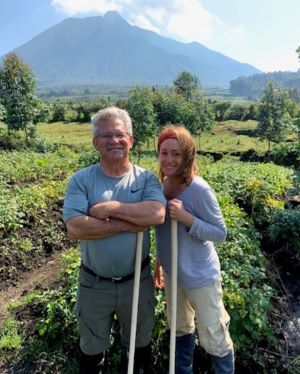
Sandy Batchelor, the longtime WorkLife Manager, championed programs that supported work-life integration, employee recognition, and family-friendly policies. Under her leadership, the university saw the expansion of the lactation program, a new Child Development Center in Sacramento, and the revitalization of Take Our Children to Work Day. She also played a key role in the launch of UC Davis’ flexible work model and the return of the Chancellor’s Outstanding Staff Awards.
Now retired, Sandy is embracing a new life chapter in San Pancho, Mexico – with plans to travel, volunteer for environmental and humanitarian causes, and spend time with her globe-trotting family. Her legacy is one of empathy, action, and innovative support for working families.
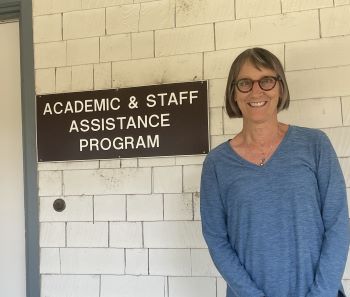
Carol Kirshnit, retiring director of the Academic and Staff Assistance Program (ASAP), spent nearly three decades guiding employees through challenges big and small. Known for her calm presence and unwavering commitment to confidentiality, Carol helped build a trusted, university-wide program that earned national recognition for mental well-being support. She leaves behind a high-performing, unified team and a workplace better equipped to care for its people.
Carol plans to slow down, enjoy her home life with her husband and puppy Quincy, and stay connected to the UC Davis Retiree Center. In her words, she’s looking forward to a future of "coffee, Wordle, and not feeling like I have to do anything else."
Want to read more?

